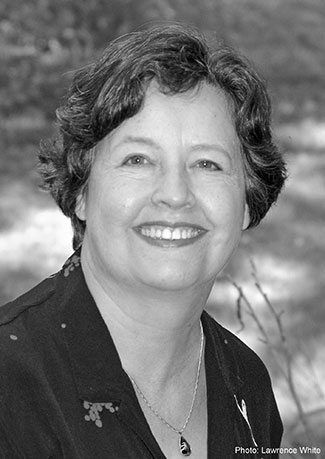Richard Causton’s studies took him from the University of York via the Royal College of Music and the Scuola Civica in Milan, to King’s College, Cambridge where he is Lecturer in Composition. In addition to composition, Causton writes and lectures on Italian contemporary music and regularly broadcasts for Italian radio. In our occasional series, in which we ask Oxford composers questions based around their musical likes and dislikes, influences, and challenges, we spoke with Richard Causton about his writing, new music, and his desert island playlist.
The post Composer Richard Causton in 10 questions appeared first on OUPblog.
 Scribd, the eBook subscription service, and Hal Leonard, a songbook publisher, has formed a new partnership. The Scribd library now features sheet music.
Scribd, the eBook subscription service, and Hal Leonard, a songbook publisher, has formed a new partnership. The Scribd library now features sheet music.
Subscribers can access thousands of sheet music pieces. Some of the selections include Adele’s 21 album, a collection of preludes by Johann Sebastian Bach, and the Frozen soundtrack.
Here’s more from the Scribd blog post: “Sheet music has long been one of the most requested features from the Scribd community, and music has been important to us to from the day we opened our doors. In fact, legend has it (and YouTube confirms) Scribd’s first $17 in revenue came from founder and CEO, Trip Adler playing his saxophone on San Francisco’s streets.”
We asked our composers a series of questions based around their musical likes and dislikes, influences, challenges, and various other things on the theme of music and their careers. Each month we will bring you answers from an OUP composer, giving you an insight into their music and personalities. Today, we share our interview with composer Hilary Tann.

Hilary Tann, photo credit: Lawrence White.
Praised for its lyricism and formal balance, Hilary Tann’s music is influenced by her love of Wales and a strong identification with the natural world. A deep interest in the traditional music of Japan has led to private study of the shakuhachi and guest visits to Japan, Korea, and China. Her compositions have been widely performed and recorded by ensembles such as the European Womenʼs Orchestra, Tenebrae, Lontano, Meininger Trio, Thai Philharmonic, Royal Liverpool Philharmonic, BBC National Orchestra of Wales, and KBS Philharmonic in Seoul, South Korea.
Which of your pieces are you most proud of and/or holds the most significance to you?
The large orchestral work, From Afar, comes to mind immediately. I especially enjoyed the Korean Broadcast Symphony performance because it captured the sense of the traditional music of Japan so well. From the chamber music repertory, Nothing Forgotten (piano trio) stands out as an Adirondack piece, and from the choral repertory, The Moor (SA) recalls Wales and my interest in sacred music.
Which composer were you most influenced by and which of their pieces has had the most impact on you?
In the early days I was influenced by the music of Roberto Gerhard, especially Libra, Hymnody, and the Concerto for Orchestra. In fact, I began postgraduate work with Jonathan Harvey in Southampton University, studying Gerhard’s oeuvre, and it was this work which initially took me to Princeton University in the United States.
Can you describe the first piece of music you ever wrote?
The Wye Valley for piano. When he interviewed me for BBCWales, Ian Skidmore called this “the beginning of my tradition of being inspired by nature”. I responded that at age 6 I wasn’t thinking that I was beginning a tradition!
If you could have been present at the premiere of any one work (other than your own) which would it be?
Monteverdi’s Vespers of 1610 — all the pageantry, all those timbres, wonderful!
What might you have been if you weren’t a composer?
A geologist. I grew up when plate tectonics were coming into the public eye and, coming from Wales, rocks have always excited me. But actually, writing music has been at the forefront ever since I can remember.
What is your favourite piece of music in the OUP catalogue that isn’t yours?
Hard to say. . . lots . . . but I loved William Matthias‘s Symphony No. 2 (Summer Music) when I first heard it, and John Buller‘s Theatre of Memory bowled me over on first listening.
Is there an instrument you wish you had learnt to play and do you have a favourite work for that instrument?
Harp — not so much the Romantic harp, but the works of Turlough O’Carolan — Celtic harp. In fact I did take lessons some 20 years ago before writing From the Song of Amergin (fl, va, hp) and I really enjoyed getting to know the 43-string instrument. (My main instruments are piano and cello, but my hands are small for these, whereas I’m told have “good” harp hands. Perhaps one day I can return to this haunting sound world.)
Is there a piece of music you wish you had written?
The Bach Cello Suites — especially the preludes and sarabandes. I’ve always loved the narrative solo line and enjoy writing pieces for solo instruments. In fact, I’ve just completed Seven Poems of Stillness for Guy Johnston (Gregynog Festival, June 2013).
Welsh-born composer Hilary Tann lives in the foothills of the Adirondack Mountains in upstate New York where she is the John Howard Payne Professor of Music at Union College, Schenectady. She holds degrees in composition from the University of Wales at Cardiff and from Princeton University. From 1982 to 1995 she held a number of Executive Committee positions with the International League of Women Composers. She was guest Composer-in-Residence at the 2011 Eastman School of Music Women in Music Festival and will be composer-in-residence at the 2013 Women Composers Festival of Hartford.
Subscribe to the OUPblog via email or RSS.
Subscribe to only music articles on the OUPblog via email or RSS.
The post Composer Hilary Tann in eight questions appeared first on OUPblog.





